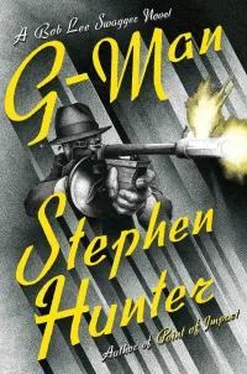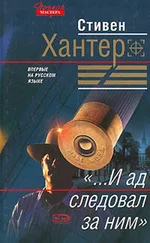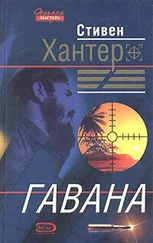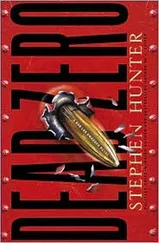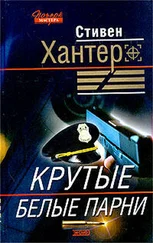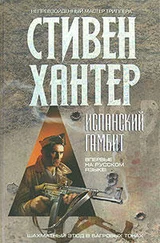Стивен Хантер - G-Man
Здесь есть возможность читать онлайн «Стивен Хантер - G-Man» весь текст электронной книги совершенно бесплатно (целиком полную версию без сокращений). В некоторых случаях можно слушать аудио, скачать через торрент в формате fb2 и присутствует краткое содержание. Жанр: Старинная литература, на английском языке. Описание произведения, (предисловие) а так же отзывы посетителей доступны на портале библиотеки ЛибКат.
- Название:G-Man
- Автор:
- Жанр:
- Год:неизвестен
- ISBN:нет данных
- Рейтинг книги:3 / 5. Голосов: 1
-
Избранное:Добавить в избранное
- Отзывы:
-
Ваша оценка:
- 60
- 1
- 2
- 3
- 4
- 5
G-Man: краткое содержание, описание и аннотация
Предлагаем к чтению аннотацию, описание, краткое содержание или предисловие (зависит от того, что написал сам автор книги «G-Man»). Если вы не нашли необходимую информацию о книге — напишите в комментариях, мы постараемся отыскать её.
G-Man — читать онлайн бесплатно полную книгу (весь текст) целиком
Ниже представлен текст книги, разбитый по страницам. Система сохранения места последней прочитанной страницы, позволяет с удобством читать онлайн бесплатно книгу «G-Man», без необходимости каждый раз заново искать на чём Вы остановились. Поставьте закладку, и сможете в любой момент перейти на страницу, на которой закончили чтение.
Интервал:
Закладка:
“Mr. Smith,” said Lebman, looking up from a bench where he’d been filing tiny checks into the grip of a Government Model with his strong, greasy hands, watching his progress through a jeweler’s loupe. He rose, pushed the loupe up, stopping to wipe his hands, and then put one hand out. “Back in town, eh? So good to see you!”
“You know my associate, Mr. Davis?”
“Howdy,” said J.P., and Lebman nodded.
“Still having great fun with the machine pistol,” said Les. “I do think I like the .38 Super better than the .45. You need more weight in the gun to compensate for a .45’s recoil, but the .38 doesn’t move off its target at all.”
“But was it designed to be a bull’s-eye gun?”
“Hell, no. I like to get up close with it and just press the trigger. It’s empty in a second, and whatever I’m shooting at looks like it lost a fight with a hand grenade.”
Everybody laughed.
“Now, I heard you might have a little something I’d be interested in adding to my collection. That’s why I’m here,” said Les.
“I bet I know what it is,” said Mr. Lebman.
“Folks do talk to folks, and you hear things. So I heard you had this particular piece. Hard to come by, I’m told.”
“And you know, Mr. Smith, ‘hard to come by’ means ‘hard to pay for.’”
“I do indeed,” said Les. “Fortunately, we hit a new gusher on some property across the river, so I just have so much money coming in, I don’t know what to do with it. I’d give it to the poor, but that would be communistic. So I’ll just spend it, thinking that Texas has been mighty nice to me.”
“Okay,” said Lebman. “And you know the law has changed on us, so there’s a new level of discretion advised. You understand that?”
“Jimmie ‘Discretion’ Smith, that’s me. Fair price for the merchandise, lips sealed at no extra cost.”
“Well, maybe we can do some business,” said Mr. Lebman. “But not out here, where anyone might walk in. Hoping you’ll come back at closing time, and when the doors are locked and the lights out, we’ll see what we can come up with.”
“Sounds square to me,” said Les.
CHAPTER 35
BOISE, IDAHO
The present
It was boilerplate, but it was good boilerplate, and he knew it well. He’d eked it out several years ago. Jen had helped him, when it got too tangled and the tenses threatened to go atomic, and he’d tested it enough times to know it worked. It’s what came of a bit of fame in a little pond in the boondocks. But he took some pride in doing it well, an old guy with buzz haircut, a face that looked like raw leather beaten with a crowbar, a weird gait to his walk, and a wardrobe perfect — just perfect — for 1957.
“Now, I know we have a new president,” he concluded, “and it’s too early to tell which direction we’ll be going, how wise, how just, how reasonable, how reluctant to use force, but also how willing to use force, hard and fierce, when it’s called for. But I do know this, from hard-earned experience: if and when the time comes, the president — and you and I — can count on the United States Marine Corps, thank you very much.”
Standard, but given meaning and dignity by the history he carried with him, having acquired it in rough zones. The applause was exuberant and he smiled, though tightly — he did everything tightly — and returned to his seat on the dais.
The banquet room of the Boise Hilton had been turned into a Temple to the United States Marine. Iconographic images dominated the walls, and the tables were full of prominent men, many former marines, many well into what passed for “establishment” in Idaho, who wished to share the marine feeling, express their belief and honor in country and service, and of course make business contacts and hand out cards. The chicken had been fine, the green beans not so fine, the bread awful, and he’d been speaking during dessert, so he’d missed the sheet cake with whipped cream and a pineapple chunk. Now, at the end of the evening, coffee was being served, and people were beginning to trail out.
“Nice job, Bob,” said Dr. Bill Tillotson, the vet and friend who’d asked him to do this gig as a favor, and, being involved in business with Bill, Bob had been unable to say no. It was okay. A few others leaned over, offering nice words, while on the dais the president of the Idaho chapter of the league was wrapping up routine business before signaling the end of the evening.
Bob just sat there, slightly exhausted. It takes it out of you, and it took it out of him more than others because of his seemingly genetic recessiveness. He’d never thought, and couldn’t have predicted, his business would be such a success, but things just took off, and he dealt with it as well as he could. Some cross to bear! he sometimes joked to himself.
But now the slight buzz of anxiety gone, he was free to relax and let his eyes find occupation in the photographs of marine history around the room. Of course he couldn’t see the most famous, which was mounted directly behind him, and showed the flag raising on Suribachi, caught in a freak moment of exquisitely designed perfection that seemed to sum up the marine experience in the war: filthy, exhausted men, sublime grace.
His eyes passed to others, and other wars, until he came to his real favorite, because it seemed to sum up his father’s war, though it was taken on an island his father never set foot on. It lacked the Iwo symmetry, and caught more of the awkwardness of combat, how men just did the best they could, and were almost always completely un-self-conscious as to how they looked or appeared, though the marines in the shot certainly looked solid enough. It had been taken on Wana Ridge, in the last great battle and slaughter of the war, Okinawa, in May of 1945, where the Japanese were determined to teach the Americans what an invasion of the home islands would cost them. Swagger had gotten interested in it once, and knew that the marine with the Thompson was named Davis T. Hargraves, and the BAR gunner, Gabriel Chavarria, and that they were from F Company, 2nd Battalion, 1st Regiment, 1st Marine Division. Both survived the war; both even revisited this spot fifty years later.
Hargraves stood upright on a slope of ruin, almost in perfect profile, against a landscape of shattered and leafless brush, and leaned into his Thompson. Somehow, he achieved a shooting position that was range-perfect, braced into the gun formally, locking it against his shoulder by the strong backwards pressure of his right-hand clutch on the pistol grip, his left arm also locked, pulling hard against the forearm piece and drawing it back into the shoulder for as much muscle as could be brought to bear on ten pounds of sheer weight and highly volatile recoil energy. His head perfectly aligned, so that his right eye precisely indexed both rear and front sights, he was in the act of firing — carefully, in light of the mandates of marksmanship — a burst at a Japanese sniper fifty or so yards away. Given his position, he probably didn’t miss. Just beyond him, Chavarria is pivoting to action with his BAR, rising from a crouch and following his comrade’s fire to the target so that he might fire too.
But the photo always had its little mysteries, primarily the magazine in Hargrave’s weapon. It was a twenty-rounder, a short, stubby thing. Why? Why, in an environment rich in both danger and targets, would you carry the smaller, twenty-round magazine instead of the longer, thirty-round magazine? An extra ten .45s could have saved somebody’s, including the gunner’s, life. Swagger could never look at the picture and not wonder.
Well, a couple possibilities suggested themselves. The thirty-rounders weren’t designed until 1942, and didn’t reach general distribution until 1943, so, in the meantime, plenty of twenty-rounders were in use. When the thirties came, no one bothered to collect the twenties. So they were equally accessible throughout the war. Maybe Davis Hargraves, who clearly would have begun the assault on Wana that morning with as much ammunition as he could carry, had used all his thirties and was now working his way through his few twenties. Or — this game was always fun! — possibly he thought General Thompson’s trench broom balanced better with the weight of the twenties, was more maneuverable in the busy, vegetation-clotted, and cratered surface of Wana on that May day. It could be either of those. Or a host of others.
Читать дальшеИнтервал:
Закладка:
Похожие книги на «G-Man»
Представляем Вашему вниманию похожие книги на «G-Man» списком для выбора. Мы отобрали схожую по названию и смыслу литературу в надежде предоставить читателям больше вариантов отыскать новые, интересные, ещё непрочитанные произведения.
Обсуждение, отзывы о книге «G-Man» и просто собственные мнения читателей. Оставьте ваши комментарии, напишите, что Вы думаете о произведении, его смысле или главных героях. Укажите что конкретно понравилось, а что нет, и почему Вы так считаете.
